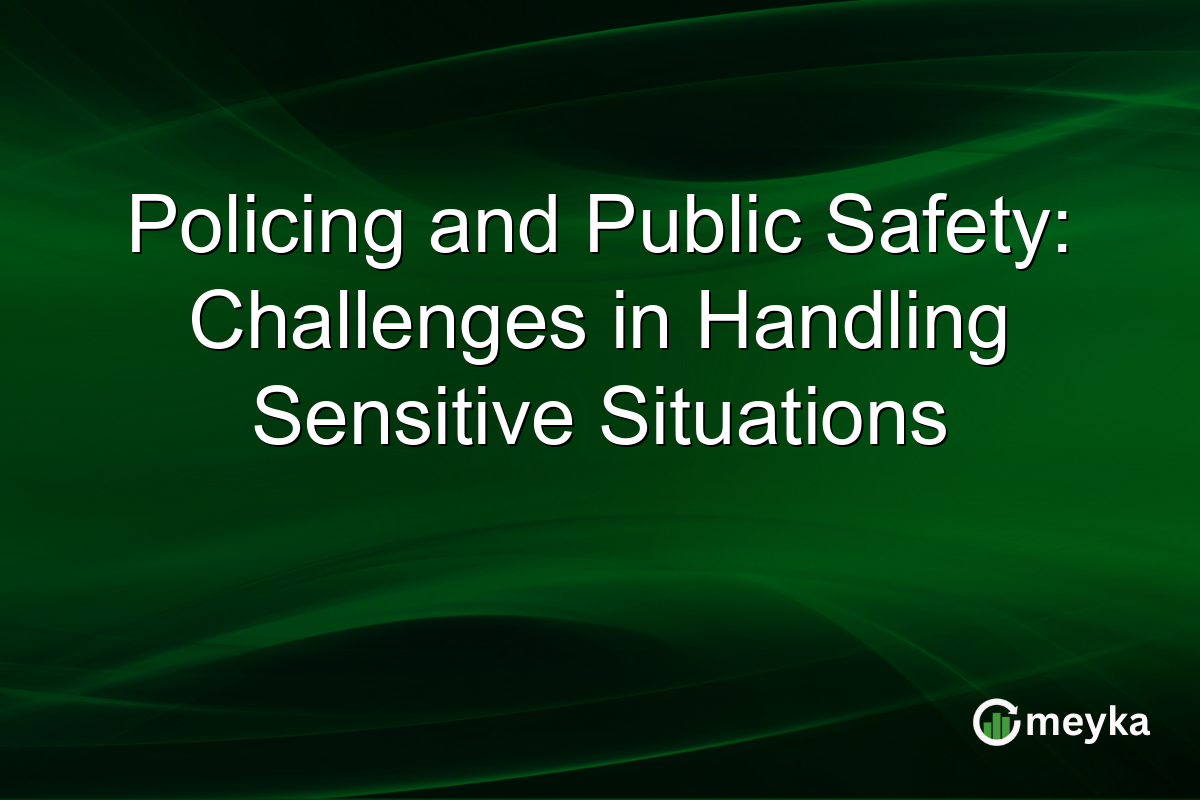Policing and Public Safety: Challenges in Handling Sensitive Situations
Police incidents analysis has become a critical focus in Germany as recent events bring to light the complexity of law enforcement in sensitive situations. These incidents often involve delicate interactions requiring precise judgment and tact. As public scrutiny intensifies, questions arise about training and strategies employed by the police to ensure public safety. Addressing these challenges is crucial for maintaining trust and effectiveness in policing.
Continue Reading on Meyka
This article is available in full on our main platform. Get access to complete analysis, stock insights, and more.
Read Full Article →





